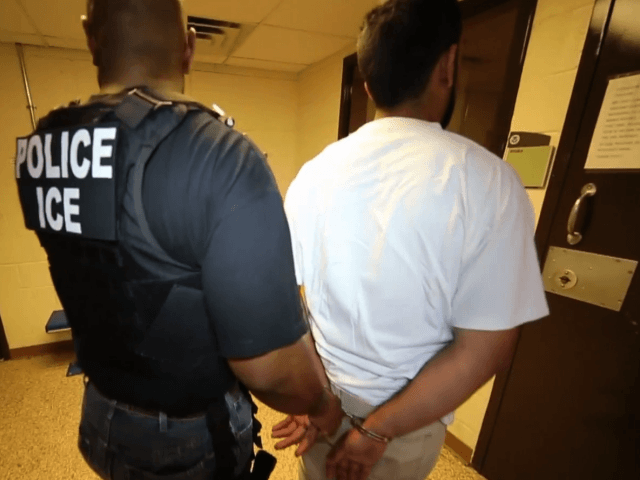WASHINGTON—Criminal aliens have another route to avoid deportation if they have incompetent lawyers during a plea bargain, after a Supreme Court decision handed down last Friday.
The case concerned Jae Lee, who immigrated with his parents in 1982 at age 13. Although his parents eventually became U.S. citizens, Lee never pursued citizenship, and so remained a lawful permanent resident. His family now owns two Chinese food restaurants, which he manages.
Lee also apparently used ecstasy and marijuana, and occasionally sold them to others. Law enforcement obtained a warrant to search his home, found drugs, and charged him with possession with the intent to distribute ecstasy.
“Although he has lived in this country for most of his life, Lee is not a [U.S.] citizen, and he feared that a criminal conviction might affect his status as a lawful permanent resident,” Chief Justice John Roberts wrote for the Supreme Court in Jae Lee’s case.
The government offered Lee a plea deal for reduced jail time. Lee was concerned about deportation. But the evidence against Lee was overwhelming, and his lawyer insisted that Lee did not need to worry about deportation because it was not mentioned in the plea deal. He pleaded guilty to a felony, and was sentenced to one year and a day in prison.
“Lee’s attorney was wrong: The conviction meant that Lee was subject to mandatory deportation from this country,” Chief Justice Roberts continued, because that crime is concerned an “aggravated felony” under the Immigration and Nationality Act. Lee was ordered deported, then petitioned for relief, arguing that he had received ineffective assistance of counsel.
The U.S. Court of Appeals for the Sixth Circuit affirmed his conviction, noting in its opinion that the appeals court was bound to do so because of binding precedent in that court.
The Supreme Court took up the case to consider overriding those precedents, exploring whether the lousy lawyering Lee had received amounted to ineffective assistance of counsel that violated the Sixth Amendment to the Constitution.
The Sixth Amendment includes in part, “In all criminal prosecutions, the accused shall … have the Assistance of Counsel for his defense.” Under Strickland v. Washington, counsel in a criminal case is ineffective if it both falls short of an objective standard of reasonable representation and the defendant’s case is prejudiced as a result of that substandard performance.
Chief Justice Roberts quoted the Supreme Court’s prior cases on that question, writing that, in part, a defendant’s lawyer in this context is ineffective if, “but for counsel’s errors, he would not have pleaded guilty and would have insisted on going to trial.”
“Here Lee alleges that avoiding deportation was the determinative factor for him,” Chief Justice Roberts continued. “He says he accordingly would have rejected any plea leading to deportation—even if it shaved off prison time—in favor of throwing a ‘Hail Mary’ at trial.”
The Supreme Court reversed the Sixth Circuit by a 6-2 vote, concluding that the incompetent lawyering here did indeed violate the Bill of Rights’ Sixth Amendment.
Justice Clarence Thomas dissented, first making the point that he continued to adhere to the view also held by the late Justice Antonin Scalia that the Sixth Amendment does not require lawyers to explain the legal consequences of a guilty plea.
The rest of Justice Thomas’s dissent was joined by Justice Samuel Alito, calling this “a novel standard for prejudice at the plea stage” that is not required by the Supreme Court’s prior precedents.
Justice Neil Gorsuch did not take part in this case, which was argued before he was confirmed to the High Court.
The case is Lee v. United States, No. 16-327.
Ken Klukowski is senior legal editor for Breitbart News. Follow him on Twitter @kenklukowski.

COMMENTS
Please let us know if you're having issues with commenting.